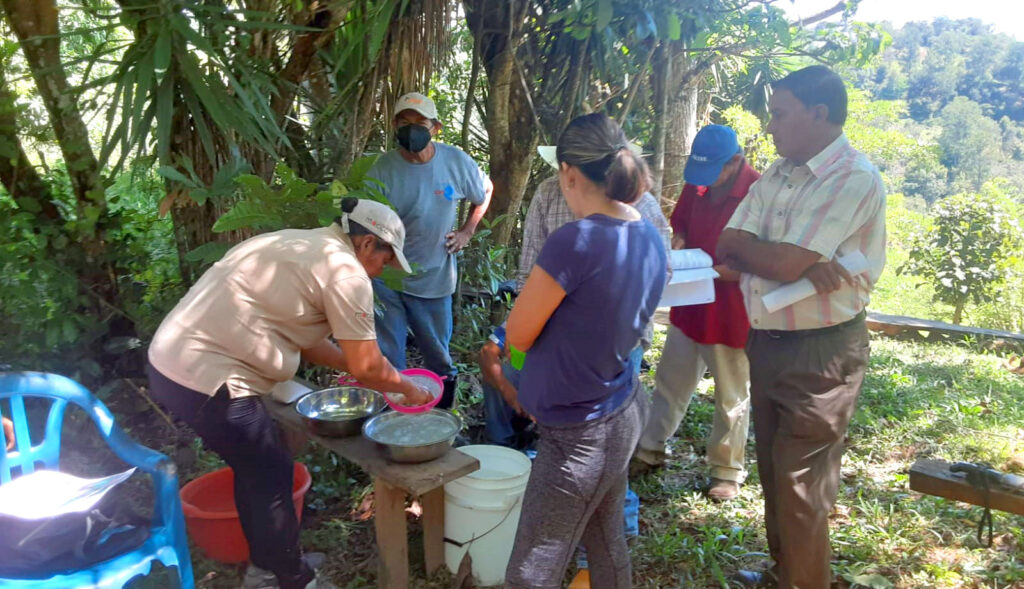The good fertilization practices that Dominga Díaz learned in the training at MOCCA allowed her to double the cocoa yields of her farm and improve her family’s income.
MOCCA is a 7-year initiative funded by the United States Department of Agriculture (USDA) through its Food for Progress Program, which seeks to improve agricultural productivity and expand trade in agricultural products. The MOCCA project is being executed by a consortium led by TechnoServe, Lutheran World Relief leads the cocoa activities.
Dominga Díaz and her family have been growing cocoa for 10 years in the municipality of San Antonio de Cortés, Honduras. In addition to being a cocoa producer, Dominga is a leader in her community and is a member of the Agri-industrial Producers Association of San Antonio de Cortés (APAGRISAC).
In 2019 through APAGRISAC, Dominga was contacted to join a leading producer initiative of the MOCCA program and since then she has provided technical assistance to 15 other cocoa producing families that are part of the association.

The training modules provided by MOCCA incorporate good agricultural practices for the establishment of plantations under agroforestry systems, pest and disease control, fertilization, harvesting and post-harvesting, and business management skills.
Organic fertilizers to reduce costs and increase productivity
As part of the training, MOCCA guided producers on the nutritional needs of cocoa plantations during the period of growth and development of the fruit in productive plantations, and on the best time to fertilize. The techniques to manufacture organic fertilizers allow producers to save money in the purchase of fertilizers.
“Since I started using organic fertilizers such as bokashi, compost and bioferments, I have spent less on the purchase of fertilizers and have noticed a big change in my cocoa plantation. Thanks to this I have been able to double my cocoa production in only 2 years”.
Dominga Díaz
How are organic fertilizers obtained?
Organic fertilizers are obtained from the decomposition of all types of organic waste from the farm, such as leaves, stalks, fruit, cocoa shells and kitchen waste, as well as manure from cattle, chickens and pigs.
To convert wastes into fertilizers, it is necessary to subject them to a decomposition process called composting before applying them. Here you can find more information on how to make organic fertilizers. a un proceso de descomposición denominado compostaje.
Here you can find more information about how to make organic fertilizers
MOCCA cocoa program in Honduras
In Honduras, MOCCA entered into a partnership with buyers and other organizations, through which it will train 1,200 cocoa producers (40% women), integrating them into higher value markets, and providing technical assistance, research, access to quality genetic material and the promotion of catalytic financing models.
In addition, through the Cacao Móvil application, designed for mobile devices, MOCCA provides producers with a library of content on good cocoa-growing practices, invitations to virtual forums, and information of interest on marketing and access to better markets.







